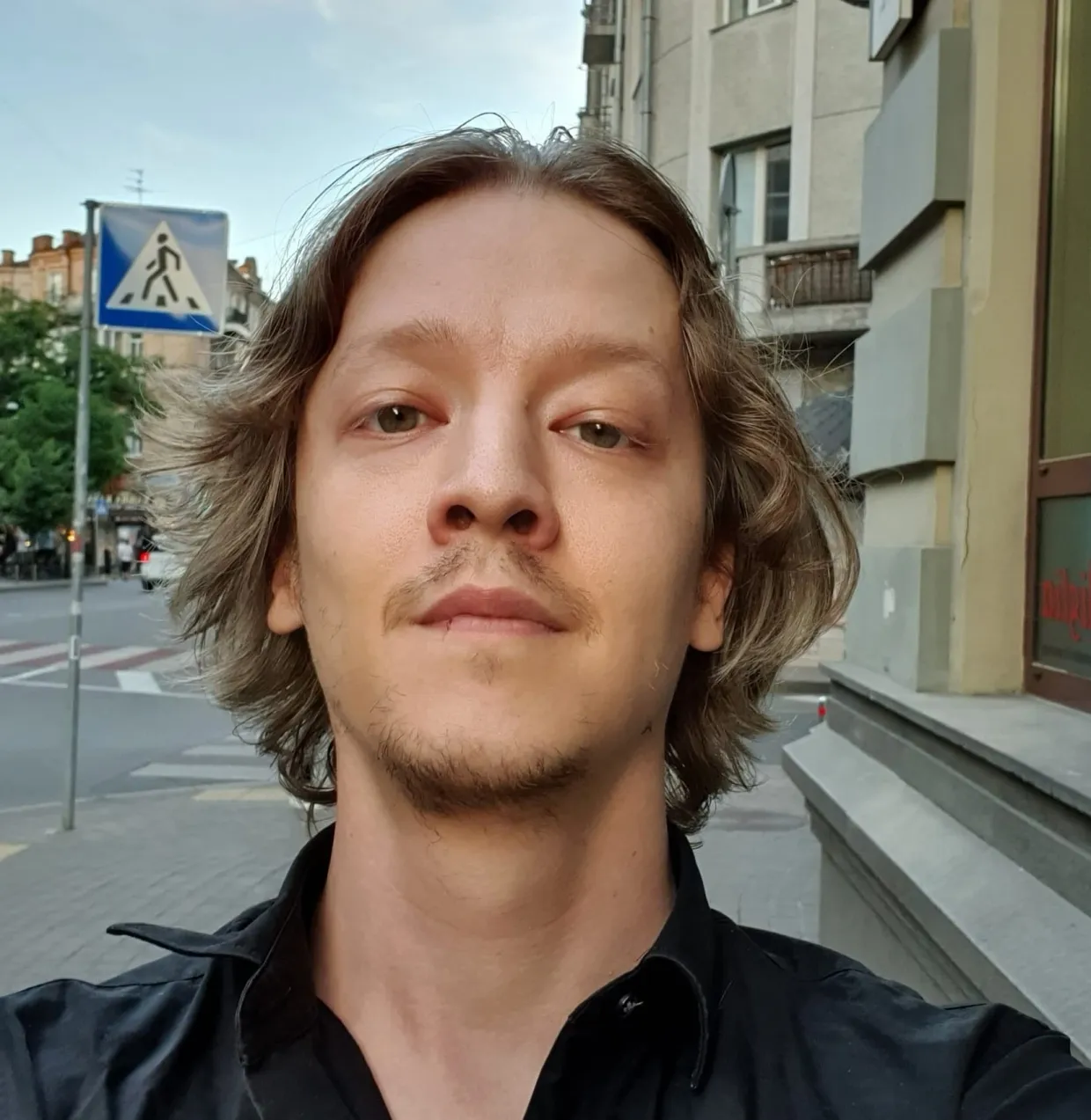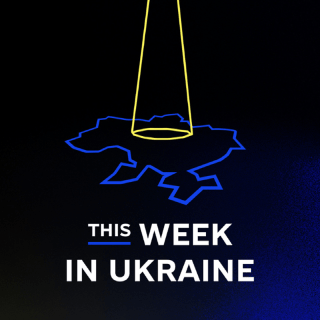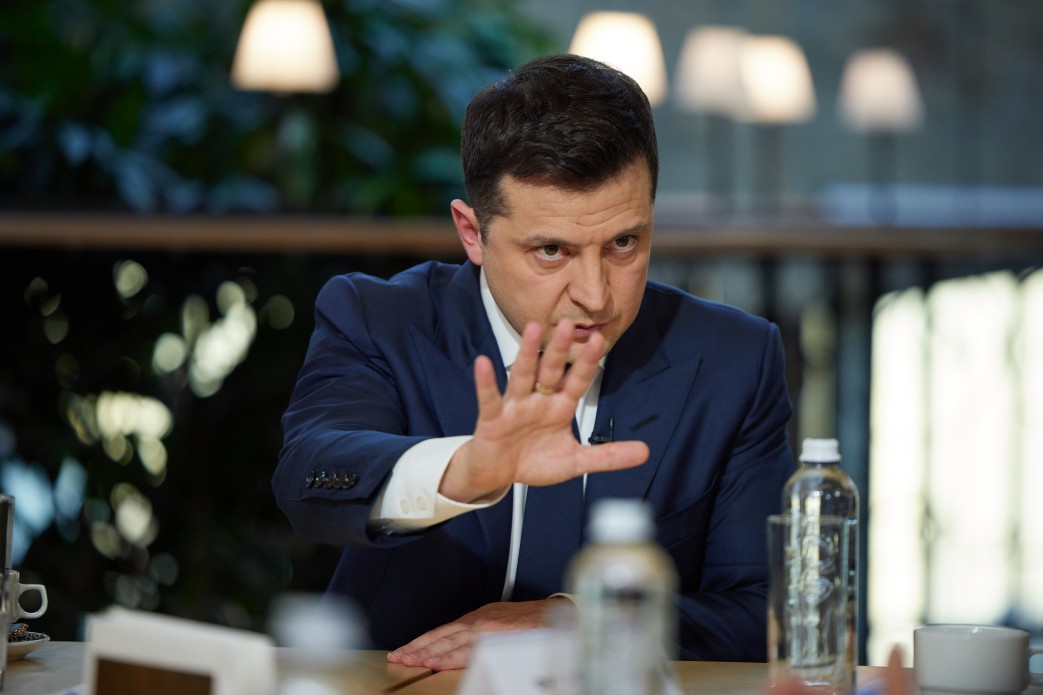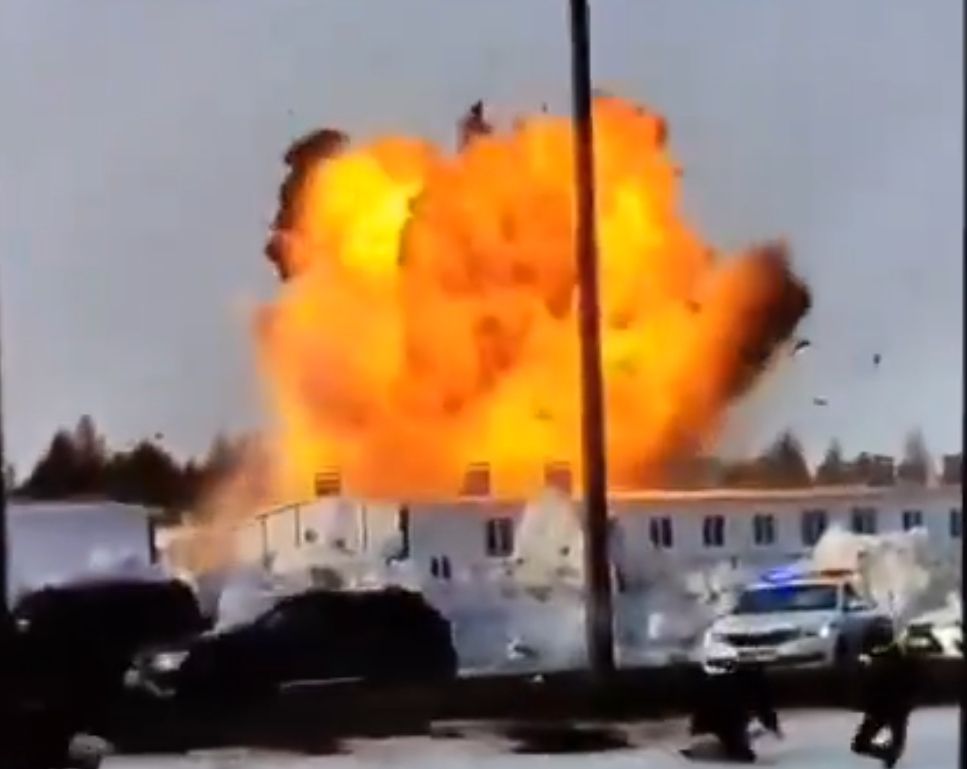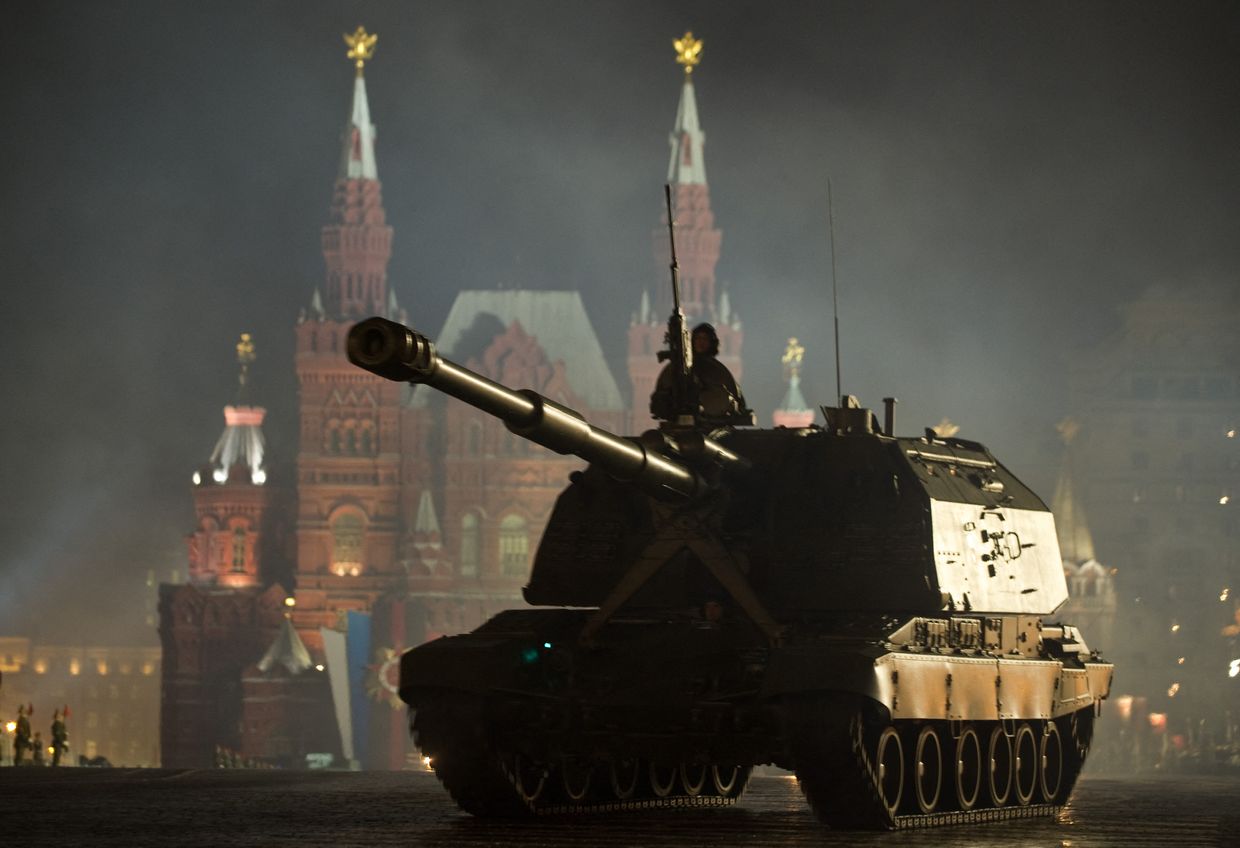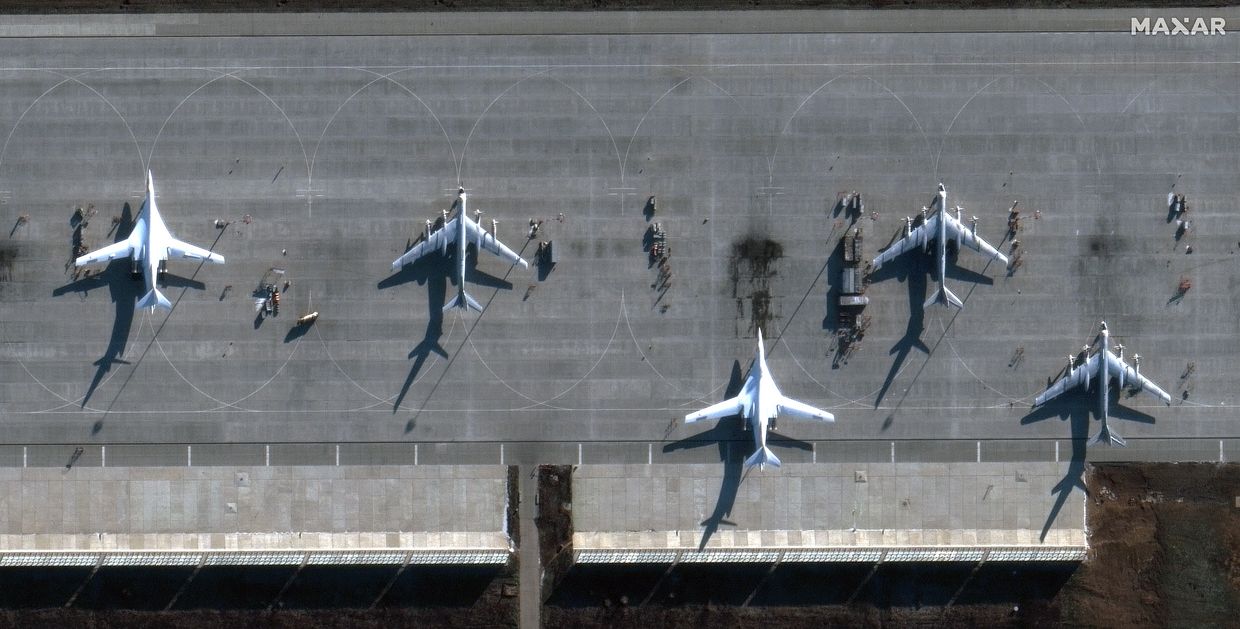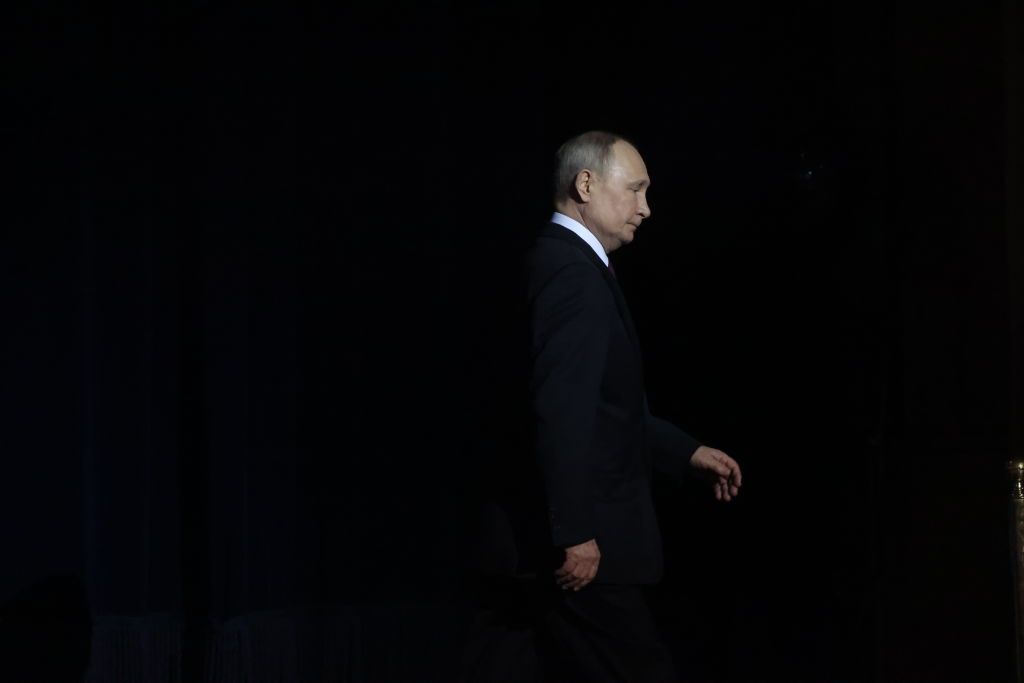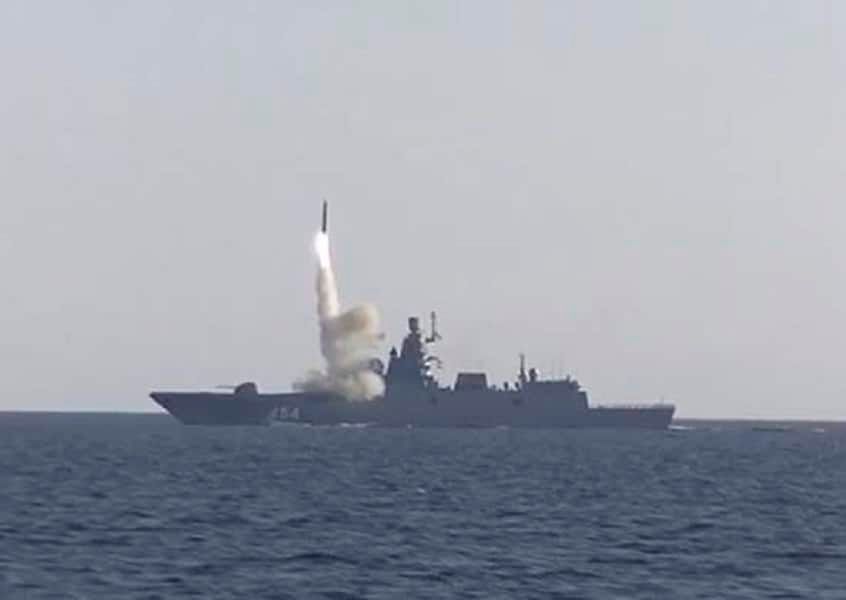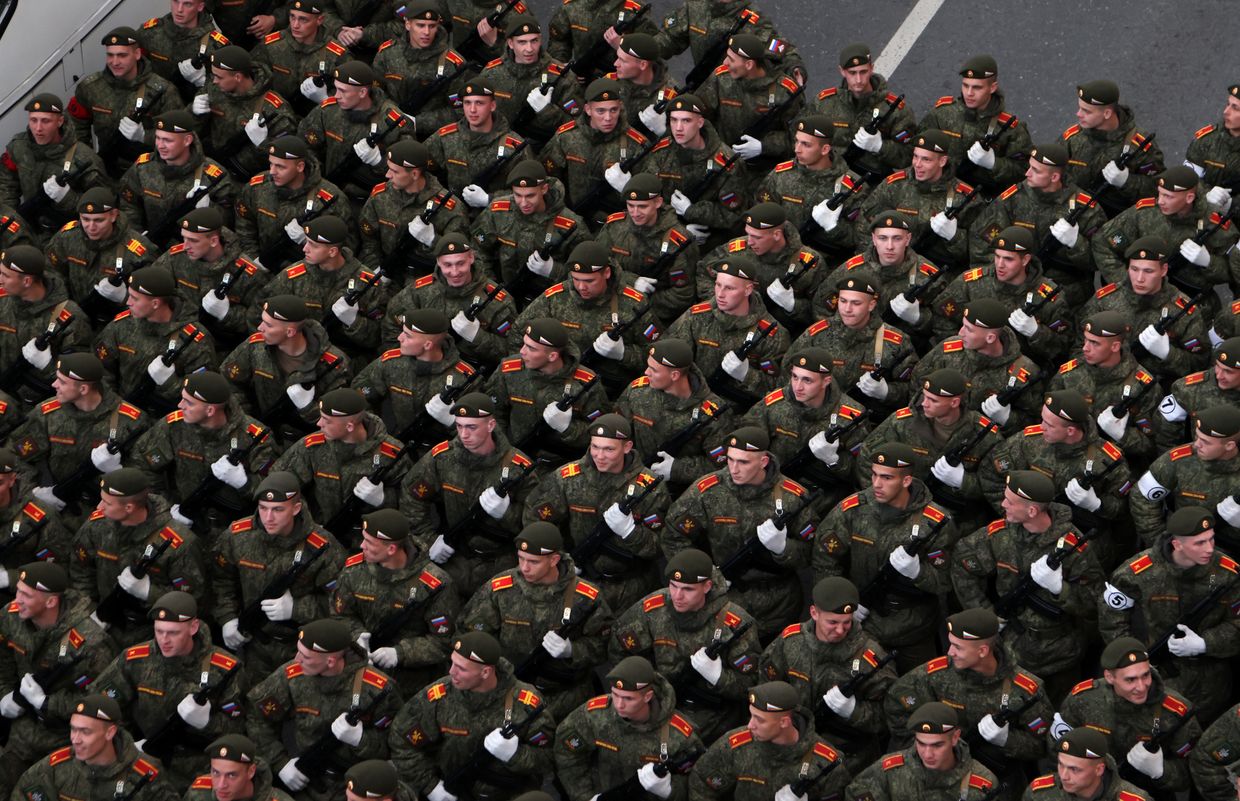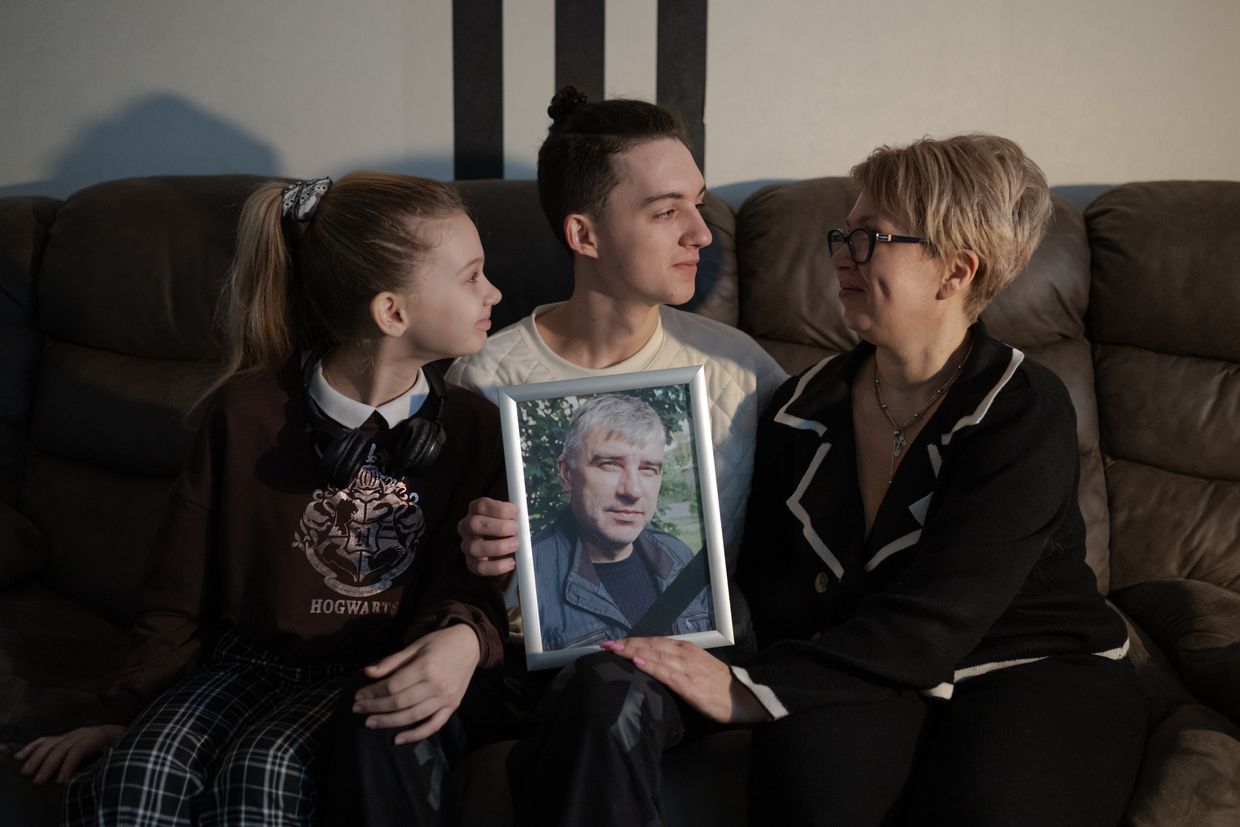When President Volodymyr Zelensky and his Servant of the People party swept into power in 2019, the president’s office famously said it “doesn’t need journalists.”
Instead, Andriy Bohdan, the head of the president’s office at the time, said that Zelensky’s team could communicate “directly” with the people.
Two and a half years later, Zelensky’s administration seems to have realized it does in fact need the media if it wants to win the next elections in 2024. But the media’s been criticizing the government.
Instead of improving its dialogue with the press, Zelensky’s government decided to take a more direct route: amplify supporters and pressure critics into silence.
“We thought that the president’s media background would predispose them to solve questions of information and freedom of speech like media types who understand these subjects well,” said Sergiy Tomilenko, head of the National Union of Journalists of Ukraine. “But unfortunately we see otherwise.”
The past four months have seen a surge of attempts to control the media. This included pressure on publication owners, demands to political talk shows, attempts to cancel the screening of a documentary film and threats of criminal prosecution against media outlets and journalists.
A bill threatening media independence has also been registered during Zelensky’s tenure and awaits review by parliament. The government wants to expand funding for tame state media to amplify its message.
“We’re seeing the displeasure of the government towards the media that isn’t under direct control,” said Tomilenko. “We’re seeing a trend of government attacks on the rights of journalists… (messages) that journalists are controlled by bad people and oligarchs… This rhetoric is intensifying and can be tied with the elections that are drawing closer.”
Natalia Ligacheva, head of the watchdog NGO Detector Media, agrees.
“Why now? We’re approaching parliamentary elections… and then the presidential elections and this government believes that it lacks the resources to win. Both the oligarchic and the free press criticize it,” she told the Kyiv Independent.
The president’s office did not respond to requests for comment for this article. The Zelensky administration previously denied pressuring journalists.
However, Ukrainian media experts and journalists pointed out that there have been too many incidents in too short a time period to ignore.
What Ukrainian media looks like
Compared to many other post-Soviet countries, speech and the press are both relatively free in Ukraine. However, free does not mean independent.
While Ukraine’s media landscape is competitive and a significant number of independent outlets exists, many publications and especially TV channels are owned by oligarchs. These media tend to push the narratives of their owners. Most Ukrainians get their news from TV.
The past few years have seen a “professionalization” of Ukraine’s journalist corps and media business models, said Andrii Ianitsky, an economic journalist who teaches his craft at the Kyiv School of Economics.
Besides oligarch owners, the media is also pressured by politicians and powerful figures. “For now it’s not systematic and for now, it’s more the exception than the rule,” Ianitsky said.
That’s not to say that journalists have an easy time in Ukraine, where journalist Georgiy Gongadze was famously kidnapped and murdered in 2000 after former President Leonid Kuchma allegedly told his associates to silence him. Belarusian journalist Pavel Sheremet was killed by a car bomb in central Kyiv in 2016; to date, there have been no convictions. A total of 13 journalists were killed between 1992 and 2021.
According to the Institute of Mass Information (IMI), the year 2020 saw 229 violations of the freedom of speech, including 171 cases of physical aggression against journalists. Tomilenko said that every five days, someone uses force in confrontation with a reporter.
Post-Maidan media landscape
Things got especially bad during the tenure of pro-Kremlin former President Viktor Yanukovych and the 2013-2014 EuroMaidan Revolution that ousted him.
A May 2014 report from the Organization for Security and Co-operation in Europe (OSCE) found approximately 300 perceived violent attacks on the media in Ukraine since November 2013 and IMI said that there were almost 1,000 violations in free speech in 2014. During that year, 78 journalists had been abducted. Police stormed press rooms and used cyberattacks.
After the EuroMaidan Revolution achieved victory, the IMI’s press barometer would show incremental improvements. Ianitsky said that while there was pressure on the media during former President Petro Poroshenko’s tenure from 2014-2019, it was not as bad as before.
“Poroshenko had a strategy not to control the media… but he had his favored channels and ones he did not like,” said Ianitsky.
Things were far from perfect. According to an investigation by the Kyiv Post in 2019, Poroshenko's allies paid media outlets for favorable coverage and directed smear campaigns against his critics on social networks throughout his presidency.
Zelensky defeated Poroshenko in a landslide in April 2019, on a promise of reform. Experts said that press freedom was decent in the first two years of Zelensky’s presidency. Worrying signs began to appear in the second half of 2021, after a surprise in the first half.
Lights out on pro-Kremlin media
The year 2021 started off with a bang for Ukraine’s media landscape.
In February, the National Security and Defense Council at Zelensky’s initiative yanked three pro-Kremlin TV channels off the air: NewsOne, Channel 112 and ZIK, which belonged to pro-Kremlin lawmaker Taras Kozak, widely believed to be a proxy for opposition party leader and Russian President Vladimir Putin’s ally, Viktor Medvedchuk.
The sanctions were applied according to a 2014 law that allows Ukrainian citizens to be sanctioned if they threaten Ukraine’s national interests.
The channels aired Kremlin propaganda even as Russia and its proxies occupied the Donbas and Crimea, having killed close to 14,000 people since 2014. Many Ukrainians were in favor of the channels’ summary shutdown, believing that their content caused explicit harm and getting rid of them in the standard way, through Ukraine’s corrupt courts, would be too long and difficult a process.
Kozak and Medvedchuk denied wrongdoing throughout and accused the government of persecution.
Some western observers said the Security Council's move sends a worrying sign to other media.
Kyiv Post shutdown
Eventually, independent media would also feel the pressure.
The Kyiv Post, a formerly flagship English-language paper ran critical articles about Prosecutor General Iryna Venediktova, a Zelensky appointee, in 2020.
After the November 2020 article, Venediktova served the Kyiv Post with a notice of a defamation lawsuit. Editor-in-chief Brian Bonner was summoned to Venediktova’s office, where Venediktova herself said she wanted to pursue the lawsuit, but ultimately decided to withdraw it.
For a time, there was a truce as the Kyiv Post ran 11 op-eds by Venediktova on various topics. Negotiations were ongoing for a big interview, which the prosecutor general’s office kept postponing.
Eventually, the Kyiv Post ran another article criticizing Venediktova in September 2021. After that, she opened and then closed criminal cases against Kyiv Post owner Adnan Kivan, according to Bonner’s interview with Ukrainian Weekly.
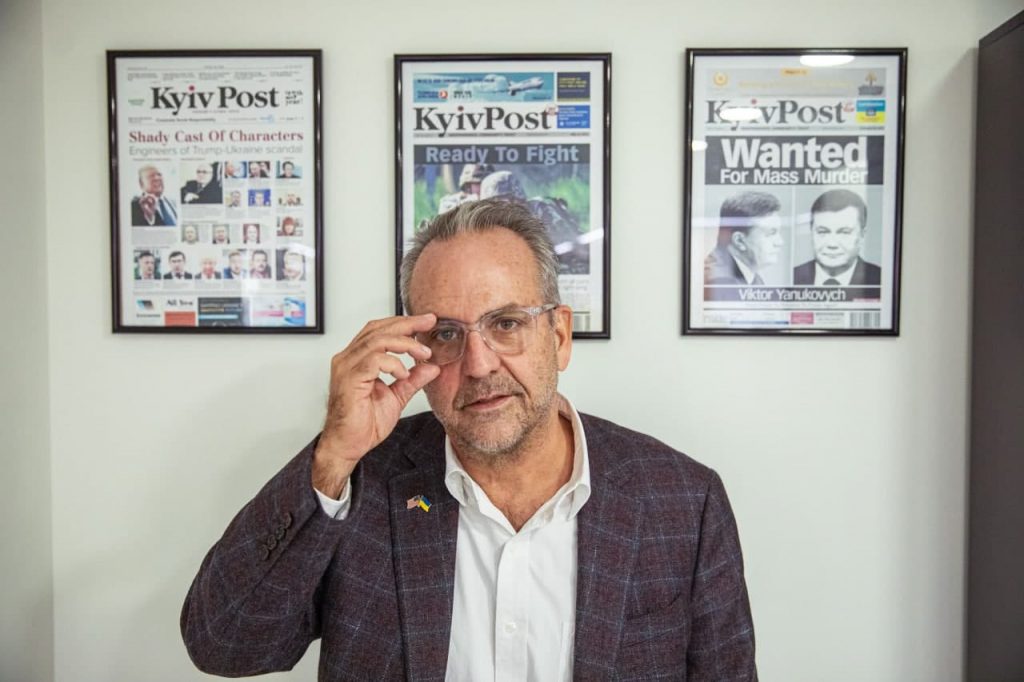
Soon after, Kivan said he would be expanding the paper by launching a Ukrainian language edition run by a handpicked TV presenter from his non-independent TV channel in Odesa. Fearing a loss of editorial independence, the Kyiv Post staff demanded that the person in charge of the Ukrainian edition go through a rigorous job interview.
Several weeks later, Kivan announced that he was closing the paper, firing everyone and reopening it under new management.
Venediktova stated in November that she never pressured anybody or even met Kivan, who has also denied allegations of pressure. But experts said that it would be very easy for officials to control a real estate businessman, the lifeblood of whose businesses are government land and state-issued construction permits.
Since then, the Kyiv Post has relaunched with a new editorial staff. The Kyiv Post’s new CEO, Luc Chenier, stated that his paper will try to focus less on criticism and more on positive news about the country.
The newspaper’s fired staff created their own publication, the Kyiv Independent.
In 2020, Venediktova also launched a civil suit against news outlet Ukrainska Pravda and activist non-profit Anti-Corruption Action Center. The watchdog ran an article in Ukrainska Pravda saying Venediktova’s husband influenced hiring policy at the State Investigation Bureau.
The prosecutor general claimed libel and asked for $5,500 in damages. On Dec. 21, the Supreme Court threw out the lawsuit.
200 criminal cases
These wouldn't be the only times that the prosecutor general would get directly involved in media discourse.
After oligarch Rinat Akhmetov's television channels bombarded Zelensky with criticism throughout the fall of 2021, Venediktova issued a Facebook statement on Dec. 2, saying she didn't have to "sit on the sidelines” while there’s a political attack going on.
“While politicians are arguing at the parliament and on TV, we will make our argument with the language of criminal case documents,” she wrote.
Venediktova went on to say that she would pursue 200 criminal cases against "the owner of several well-known television channels, coal companies and energy companies." While she didn’t mention Akhmetov by name, the post was clearly referring to him.
Zelensky and Akhmetov have been engaged in a public feud connected to Zelensky’s recently passed law cracking down on oligarchs. Another law also raised rents for iron ore production, affecting Akhmetov as Ukraine’s top iron producer.
On Nov. 26, the president accused Akhmetov of being involved in a coup attempt scheduled for Dec. 1 or 2, referring to supposed audio recordings of Ukrainians and Russians discussing it. Akhmetov stated that this is “an absolute lie.” No coup attempt eventually materialized.
Howitzer scandal
Another criminal investigation was opened against Yurii Butusov, the editor-in-chief of online publication Censor.net.
Butusov had a verbal spat with Zelensky at the president's five and a half hour marathon press conference on Nov. 26. Butusov accused Zelensky of appointing corrupt and pro-Kremlin officials. The president accused Butusov of working for oligarchs and causing combat deaths in Donbas by publishing information about a Ukrainian drone strike.
Only days later, the State Investigation Bureau announced that it opened a criminal probe into a video on Butusov's social media. In it, the camo-clad Butusov fires a 152 millimeter artillery piece, in the company of Ukrainian troops, saying “fire on the occupiers.” The bureau was to review whether Butusov was "planning, preparing, launching and waging war."
Butusov stated that the video had been shot during the training of territorial defense units. Later, he said that he had not been informed of any suspicion before the bureau went public. He believes the case to be retaliation for his military reporting and criticism of Zelensky.
"The speed with which the investigation was announced, it could only have been an order from the government," he said, adding that he is suing Zelensky’s administration for libel.
Oleksiy Arestovich, an aide to Zelensky’s chief of staff Andriy Yermak, later wrote that the Kremlin could kill Butusov to provoke large-scale protests and destabilize Ukraine. Butusov said he interpreted this as a threat from the administration.
Blocking a documentary premiere
In October, investigative journalists at Slidstvo.info wanted to air “Offshore 95,” a documentary film about Zelensky's offshore businesses revealed in the recent Pandora Papers leaks. Zelensky’s companies, created long before he went into politics, allegedly arranged for dividends to keep flowing to a company owned by Zelensky’s wife Olena.
The film was scheduled to be screened at Mala Opera theater, which is owned by the city of Kyiv. However, Slidstvo journalists alleged that Ukrainian officials tried to halt the screening.
Anna Babinets, the Slidstvo chief editor, wrote that she got a call from the acting director of the theater five hours before the premiere. The director told her the screening was canceled, claiming the theater had no electricity and was under repair. Babinets said she visited the theater and saw that it had power and there were no repairs, while the film posters had been removed.
After Babinets' post about the incident went viral online, the theater backed down and showed the film during its original time slot.
Ukrainska Pravda reported that the incident resulted from a call by a Security Service of Ukraine (SBU) employee who threatened "problems'' if the screening wasn’t canceled. The chief of the SBU is Ivan Bakanov, Zelensky’s childhood friend.
Dictating terms to talk shows
Political talk shows on two television channels, UA: Pershyi and Pryamyi, accused President Volodymyr Zelensky and his party of political pressure in October.
Pershyi is Ukraine’s public broadcaster. Pryamyi is owned by Zelensky’s rival Poroshenko.
Both channels said that the President’s Office sent them demands on whom to include and exclude from their political talk shows. If they did not comply, the President’s Office allegedly retaliated by blocking the ruling Servant of the People party members from participating.
For example, Myroslava Barchuk, the host of UA: Pershyi’s political talk show Countdown wrote on Oct. 20 that she was told to feature two Servant of the People members who are not energy experts on an episode about energy security. If she refused, party members would be banned from attending. A week later, the President’s Office said it would only allow two “Servants” to attend the program if it disinvited Geo Leros, a lawmaker who got kicked out of the party after criticizing Zelensky.
Barchuk went on to say that all appearances by Servant of the People members had to be approved by the contact person of Zelensky’s adviser, Mykhailo Podolyak. Countdown refused to cooperate.
Pryamyi stated that it also rejected ultimatums from Zelensky’s office, which punished it by refusing to provide accreditation for the president’s events. In September, the President’s Office “gave direct orders to completely ignore the Pryamyi channel,” the TV station wrote.
Savik Shuster, the host of political talk show Freedom of Speech which airs on Akhmetov’s TV channel Ukraine, also claimed that the President's Office pressured his program.
The President’s Office denied all these accusations. Zelensky said "I don't understand what the President's Office or I have to do with this but it’s hype. We don't confirm anything, there are no lists. Deputies can go or not go on any program.”
Journalists attacked inside state bank
Earlier in October, a team from the Radio Free Europe/Radio Liberty investigative program Schemes was attacked while interviewing the head of the state-owned Ukreximbank, Yevhen Metzger.
Journalists Kirill Ovsyaniy and Oleksandr Mazur were recording an interview with Metzger in his office as part of an anti-graft investigation on Oct. 4. One of their questions provoked an angry reaction from the bank chairman, who ordered his security to seize their equipment and delete all data recorded during the interview. Metzger and his associates reportedly locked the journalists in the office for nearly an hour and threatened them.
Ukreximbank at first denied taking any forceful actions and stated that the interview had to be terminated due to journalists posing questions on bank client information considered confidential.
The journalists later managed to restore their data and air the video that proved their claims. The news caused a stir and launched a police investigation. Metzger was forced to apologize — on Oct. 11, he resigned.
According to banking sources who declined to be identified, Zelensky knows Metzger quite well, something Metzger denied. The former chairman’s wife Julia has represented Zelensky on the board of state-owned PrivatBank and is reportedly friends with staff from the president’s old entertainment company Kvartal 95. Zelensky has been known to call Metzger on his phone and address him by first name.
"This shows how (Zelensky’s) circle thinks of the media,” Ianitsky said.
Legislative crackdown on media
While by themselves, any of the above would be alarming, the fact that they happened in quick succession is a warning sign that political pressure is becoming more systematized and dangerous, experts believe.
“The people surrounding Zelensky are not trying to solve the problem, they’re trying to please Zelensky and they’re coming after the media,” Ianitsky said. “It’s moving in a more systematic direction,” he added. “It’s a snowball effect.”
One of the biggest signs of systematization is the bill “on media” registered during Zelensky’s presidency. The bill purports to reduce the concentration of media in the hands of a small number of oligarch owners. Pro-government columnist Serhiy Leshchenko wrote that the bill is expected to be passed by the end of 2022.
While oligarch ownership hurts the media landscape, journalists have published joint critical statements, complaining that this bill will grant a dangerous amount of power to the National Council on Television and Radio, letting it censor media that don’t agree with the president.
Among other things, the council will be able to revoke media licenses and registration if editorial offices don’t submit for mandatory inspection, including of their finances. The council would also be empowered to impose fines on online media.
“When the government can block certain permissions, it’s very easy to pressure an owner who has media resources,” Ligacheva said. “Free speech is the foundation of democracy and oligarchic freedom of speech is still better than a government monopoly.”
Tomilenko said that his National Union of Journalists constantly criticizes the regulator as a “politically dependent, politically motivated organ.”
“But before, there was the consensus of various oligarchs in Ukraine. Now, the council’s composition is loyal to the president. The majority of members have a history of working with Kvartal 95 or (oligarch Ihor) Kolomoisky’s media,” he said. Kolomoisky’s channel 1+1 airs content by Kvartal 95.
Expanding loyal state media
Besides trying to increase control over other media, the president’s office wants to expand its own.
“It’s tendentious,” Ligacheva said. “The post-2014 reforms towards government media are now turning into the government trying to take control of whatever channels it can.”
Ligacheva said that besides constant attacks on UA: Pershyi, the government has allocated a lot of money to expand TV channel Rada, the official channel of the Ukrainian parliament. The government also wants to grow the profile of state news service Ukrinform.
“Our sources say that Ukrinform correspondents will have to create a positive image of Ukraine abroad,” she said. “Usually, Ukrinform collects information from abroad rather than pushing certain narratives about Ukraine.”
There is also a plan to expand the state TV channel Dom — broadcast in Russian-occupied Crimea and Donbas — into a nationwide network. In a November interview with Ukrainska Pravda, former Dom journalists said that the broadcaster told them what they are and are not allowed to say and urged them to frequently bring up and praise Zelensky’s projects.
Ligacheva said it appears as though the government is trying to make up for its failure to communicate effectively.
“Although any channel is ready to carry forward the government’s message, the fact that they have weak speakers isn’t the problem of the media, it’s the problem of the government itself,” she said.
